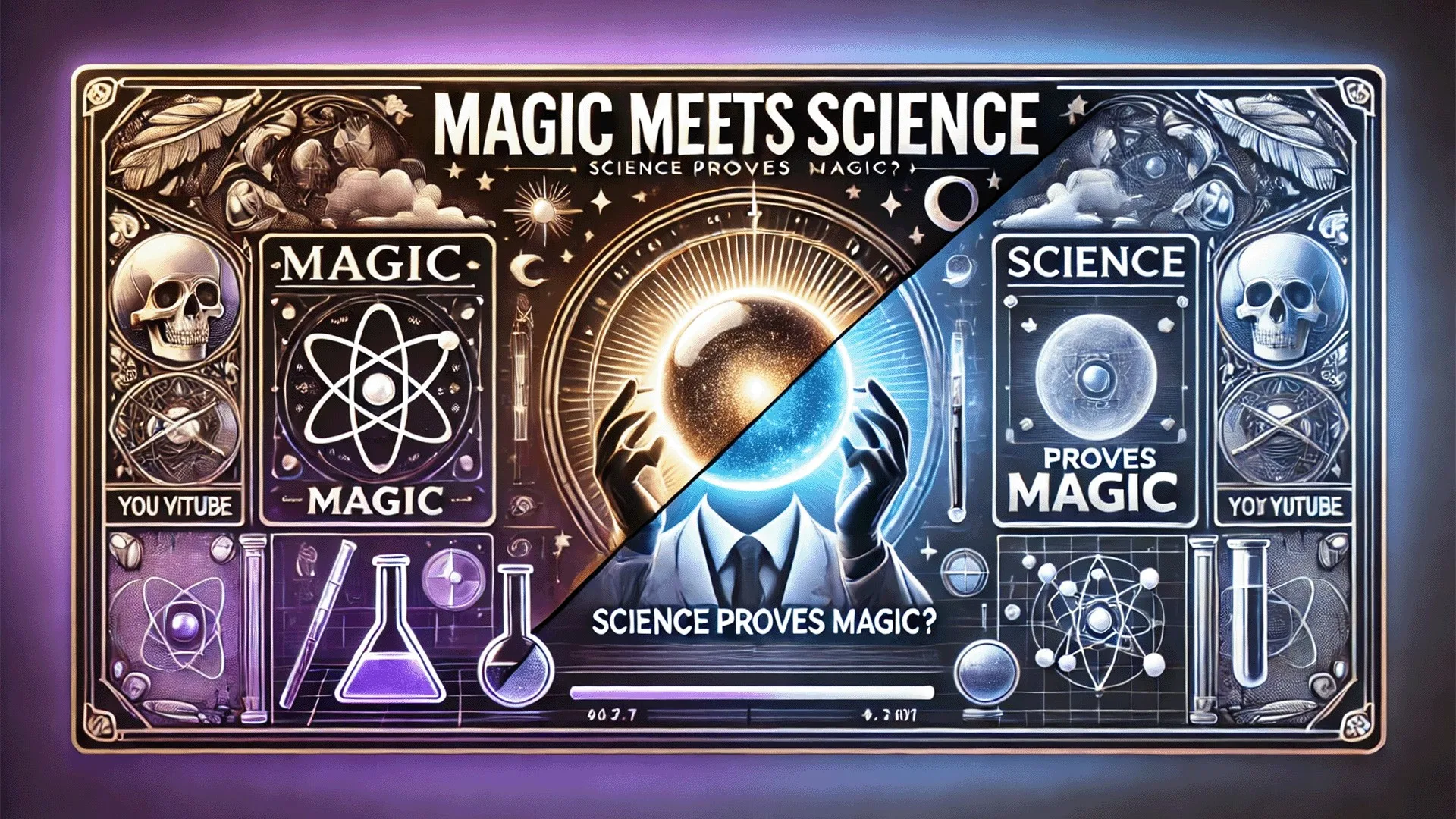A World Reawakened In a world dominated by technology, materialism, and relentless skepticism, something extraordinary is brewing. Ancient practice
A World Reawakened
In a world dominated by technology, materialism, and relentless skepticism, something extraordinary is brewing. Ancient practices, once dismissed as superstition, are now being revisited in the light of modern science. From studies on mind-matter interactions to experiments on precognition, the veil between magic and reality is thinning. Could it be that the mystical powers our ancestors revered are rooted in scientific truths?
As scientists explore the enigmatic realms of consciousness, they are uncovering data that challenges the very foundation of materialism. From the laboratory to the meditation mat, magic—redefined through empirical evidence—is becoming a valid and pragmatic tool for personal and societal transformation.
This article dives deep into the intersection of ancient wisdom, scientific discovery, and modern applications. Together, we’ll explore how the disenchantment of the past is giving way to a profound re-enchantment of reality.
1. Historical Context: Magic in the Shadows
For centuries, humanity turned to magic to understand the inexplicable. Ancient Egyptians sought guidance from oracles, and yogic traditions documented psychic powers, known as siddhis. Magic wasn’t just a belief system; it was a way of life.
But as organized religion gained power, magic became a threat. Practices that empowered individuals—whether through divination or enchantment—were branded as heretical. The medieval witch trials were not merely about superstition; they were about control. Knowledge of the mystical was concentrated within elite religious institutions while the common practitioner was ostracized or worse.
The Enlightenment era, with its emphasis on rationality, further suppressed magical thought. Magic, once a bridge between humans and the cosmos, was relegated to the realm of fantasy.
2. Scientific Renaissance: Proving the Unseen
Fast forward to the 21st century, and the tides are turning. A new wave of scientists is challenging the rigid boundaries of materialism. Dr. Dean Radin, one of the leading figures in parapsychology, has spent decades conducting experiments on phenomena like telepathy, precognition, and psychokinesis. His findings suggest that the mind is not confined to the brain but interacts with the physical world in ways we are only beginning to understand.
Case in Point: Mind-Matter Interaction
One fascinating study involved machines designed to measure randomness. Subjects were asked to focus their intentions on the machines to influence the outcome. Time and again, results indicated that focused intention could subtly skew the machine’s randomness.
Precognition in Action
Studies on “presentiment” reveal that the human body responds to future events seconds before they happen. In one experiment, participants showed physiological changes—like increased heart rate—when exposed to emotionally charged images, even before the images were randomly selected by a computer.
These experiments provide empirical backing for what mystics and shamans have long claimed: our thoughts and emotions influence the world in profound ways.
3. Practical Magic Meets Science: A Revival in Everyday Life
With science validating psychic and magical phenomena, people are integrating these practices into their lives. Here are a few areas where the lines between science and magic blur:
- Sigil Magic: Creating symbols that encapsulate one’s desires, a practice akin to modern goal-setting and visualization techniques.
- Blessing Objects: Experiments with blessed water and food show tangible benefits, such as improved mood and plant growth.
- Meditation and Visualization: Neural imaging studies confirm that focused intention rewires the brain, supporting magical practices like manifestation.
In one study, participants who consumed chocolate blessed by monks reported significantly higher mood improvements than those who consumed the same unblessed chocolate. Such results hint at the power of intention and belief, pillars of magical practice.
Hollywood’s Elite Pay This Doctor $25,000 to Unlock Their Next-Level Success!
4. The Re-Enchantment of the World
As society grapples with existential crises—climate change, social unrest, and technological overreach—there is a yearning for deeper meaning. Magic, long suppressed, offers a path toward reconnection.
This re-enchantment is not about abandoning science but expanding its boundaries. By embracing the mystical alongside the empirical, humanity can rediscover its place in a cosmos rich with mystery.
- Impact on Culture: The integration of magic and science could transform education, healthcare, and even governance, fostering a world where intuition and logic coexist.
- Empowerment: By acknowledging their latent abilities, individuals can take greater control of their destinies.
5. How to Explore Magic Safely
While the idea of magic is alluring, it requires caution and respect. Here are a few tips for beginners:
- Start Small: Experiment with practices like meditation or visualization before delving into complex rituals.
- Find a Mentor: Learn from experienced practitioners to navigate the pitfalls of magical work.
- Respect Free Will: Avoid using magic to manipulate others, as it can backfire energetically.
- Stay Grounded: Balance exploration with a healthy dose of skepticism to avoid falling into paranoia.
Conclusion: Bridging the Mystical and the Scientific
The resurgence of interest in magic signals a collective shift in consciousness. As science continues to explore the mysteries of the mind and the universe, it validates what ancient traditions have always known: reality is far more interconnected and profound than it seems.
Whether you’re a scientist, a seeker, or simply curious, the journey into magic is one of discovery—not just of the world but of yourself. Embrace the mystery.
Hollywood’s Elite Pay This Doctor $25,000 to Unlock Their Next-Level Success!


